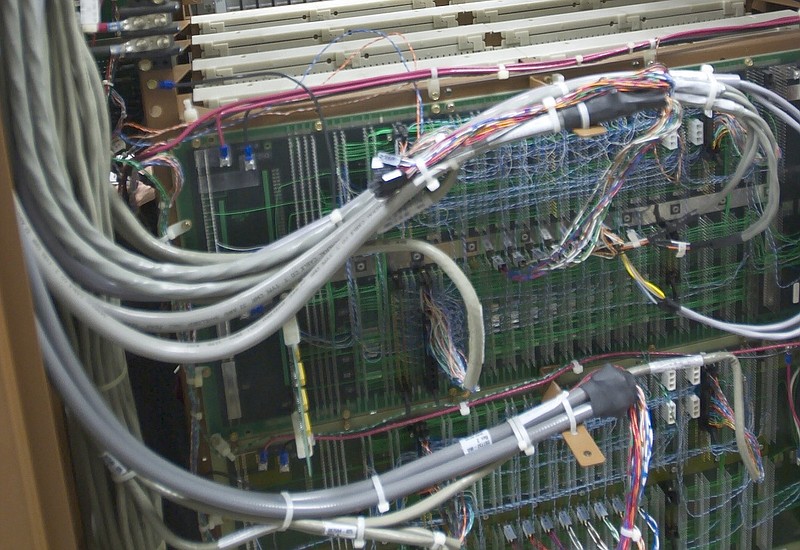A Bentonville think tank issued a report Wednesday encouraging Arkansas business leaders and policymakers to act quickly to move the state forward in the post-pandemic economy.
The 77-page “Arkansas Economic Recovery Strategy” is a guide for business development and growth in the state. The study outlines six areas that need support: talent and workforce development, innovation and research, entrepreneurship and small business, health care, supply chains and logistics and broadband deployment.
"Arkansas needs to move swiftly and implement the recommendations included in this report to position itself as a first-mover in the post-pandemic economy," the report said.
Heartland Forward, which bills itself as a "think and do tank," was assigned to compile the report by the task force for economic recovery, which Gov. Asa Hutchinson established in April 2020 to provide guidance for businesses during the covid-19 crisis.
The 35-member panel was led by Steuart Walton, a member of the family that founded Walmart. Walton is a founder of RZC Investments and also owner of The Runway Group, a holding company that invests in hospitality, real estate and cultural attractions in Northwest Arkansas.
In a letter opening the report, Walton wrote that Arkansas should use the pandemic crisis as a springboard to jump into the future of job creation and to sustain long-term economic growth.
"While focusing on the immediate needs of our state -- needs that are critical to the health and safety of our residents, as a group, we've also known that we need to look further into the future with a long-range lens on what Arkansas should be considering for economic health and prosperity coming out of COVID," Walton wrote.
The governor issued a statement Wednesday applauding the report.
[CORONAVIRUS: Click here for our complete coverage » arkansasonline.com/coronavirus]
"The recommendations by the economic recovery task force outline the statewide perspective of opportunities and challenges we face in Arkansas," the governor said. "The recommendations give support to the direction that we have been moving in terms of increasing broadband access, expanding technologies, and encouraging entrepreneurship. This is extremely helpful to each community's economic strategy."
The report advocates a culture shift in economic development to emphasize entrepreneurship and innovation.
"To create meaningful change in the Arkansas economy, the state must embrace innovation as a critical driver of economic prosperity," the report says. "This will require a cultural shift incorporating robust and long-term investments in the innovation ecosystem that harnesses local ingenuity as a significant part of the economic development portfolio."
Embracing entrepreneurship and innovation is important yet it would present a challenge and may not be appropriate at this time for some areas of Arkansas, said Mike Preston, state commerce secretary and a member of the governor's task force that commissioned the Heartland report.
"To me that is the future of economic development and, aspirationally, it is where Arkansas and many other states would like to go," Preston said. "Right now, though, we're kind of at a point where it's more feasible for a regional effort. There are communities that can't focus solely on innovation -- they look to bring in jobs that are more conducive to the area."
There are disparate needs and strengths across the state. For example, Northwest Arkansas has a robust entrepreneurial spirit compared with south Arkansas, which would be more inclined toward timber production.
The report said that it aims "to provide guidance to state, regional and local policymakers and leaders that will position Arkansas' economy to rebound and expand at a faster pace than envisioned prior to the pandemic."
Heartland Forward believes the report is a blueprint that lays the foundation for future success, according to Ross Devol, president and chief executive officer of the organization.
"The strategy is only as good as its execution and implementation," DeVol said Wednesday. "We need to think about how do we enshrine this, institutionalize it, so it doesn't just depend on who's in the governor's office to carry forth these recommendations."
Heartland's report advocates for specific programs and approaches, including providing permanent and increased funding for the Arkansas Economic Development Commission, expanding workforce development and apprenticeship programs, and bolstering entrepreneurship and startup businesses.
The three-month effort included compiling data that was augmented with focus groups and interviews of business and community leaders across Arkansas. Heartland Forward was paid $300,000, which included funds for visiting fellows who participated in the researching and writing of the study, according to DeVol.
Arkansas, the report noted, has assets that will attract the knowledge workers who can spark future economic development opportunities. Those strengths include affordable housing, family-friendly communities, an escape from traffic and crime and access to an abundance of natural amenities. And the state's strong transportation infrastructure creates opportunities to expand supply chain and logistics efforts.
"This economic recovery strategy charts a proposed plan for advancing Arkansas' efforts to address talent and workforce development needs, catalyze innovation and research, support entrepreneurship and small businesses, deliver health care across the state, promote supply chain and logistics as an economic driver, and increase access to high-speed internet," the report said.
The report should encourage leaders across Arkansas to reconsider how they evaluate economic development opportunities going forward, DeVol said.
"The takeaway is to think differently about economic development in the future, about the importance of entrepreneurship -- that's where net job creation occurs -- and also think about the importance of workforce development and talent recruitment," he added.
The full study is available at heartlandforward.org.

